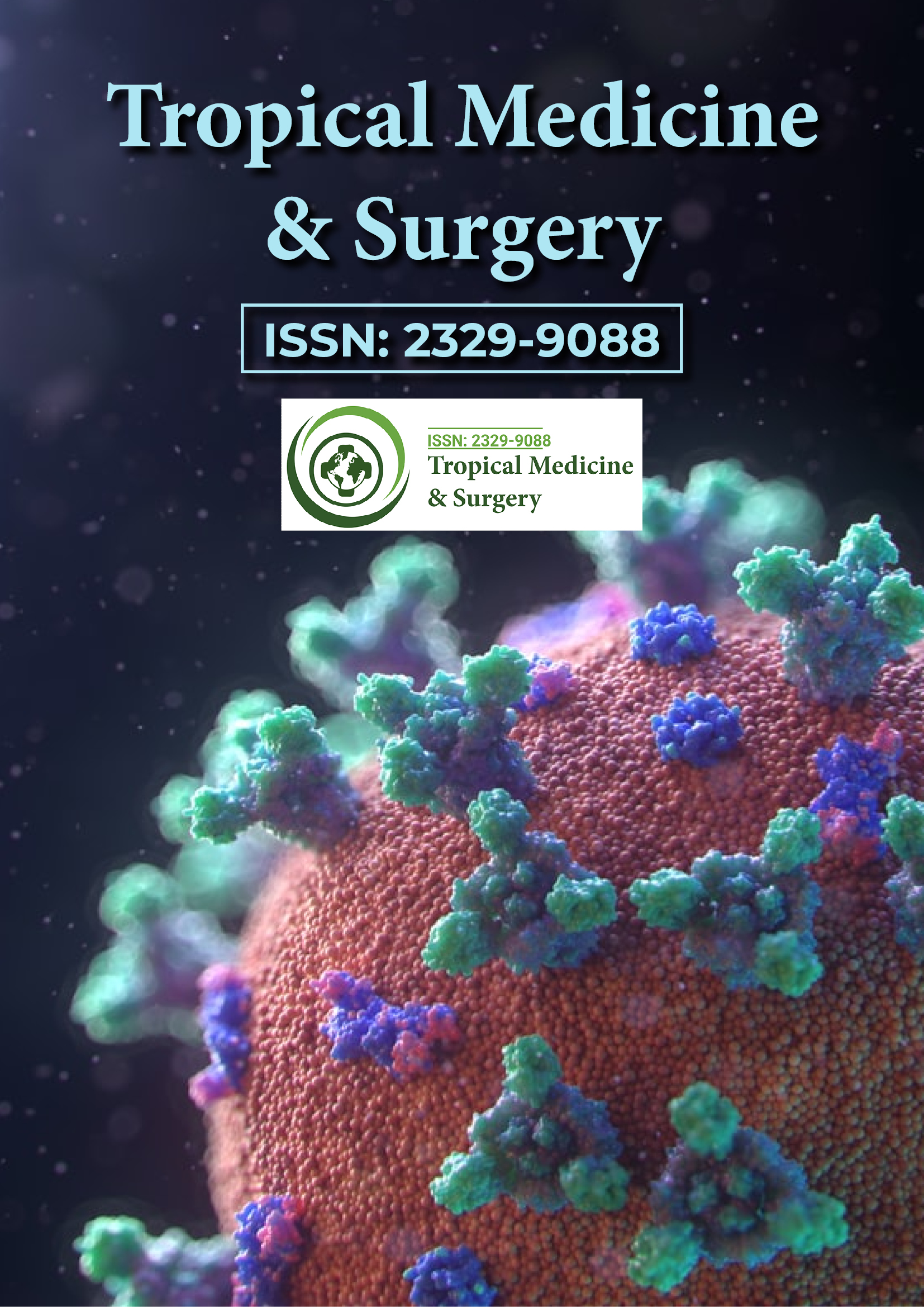Indexed In
- Open J Gate
- Academic Keys
- RefSeek
- Hamdard University
- EBSCO A-Z
- OCLC- WorldCat
- Publons
- Euro Pub
- Google Scholar
Useful Links
Share This Page
Journal Flyer

Open Access Journals
- Agri and Aquaculture
- Biochemistry
- Bioinformatics & Systems Biology
- Business & Management
- Chemistry
- Clinical Sciences
- Engineering
- Food & Nutrition
- General Science
- Genetics & Molecular Biology
- Immunology & Microbiology
- Medical Sciences
- Neuroscience & Psychology
- Nursing & Health Care
- Pharmaceutical Sciences
Perspective - (2024) Volume 12, Issue 9
Tropical Veterinary Medicine: Addressing Unique Challenges in Animal Health
Francis Amarakoon*Received: 02-Jun-2023, Manuscript No. TPMS-23-21642; Editor assigned: 05-Jun-2023, Pre QC No. TPMS-23-21642 (PQ); Reviewed: 19-Jun-2023, QC No. TPMS-23-21642; Revised: 27-Dec-2023, Manuscript No. TPMS-23-21642 (R); Published: 04-Jan-2024, DOI: 10.35248/2329-9088.24.12.339
Introduction
Tropical veterinary medicine is a specialized field of veterinary science that focuses on the diagnosis, treatment, and prevention of animal diseases prevalent in tropical and subtropical regions. These regions are characterized by high temperatures, humidity, and diverse ecosystems, which present unique challenges to animal health. In this article, we will explore the significance of tropical veterinary medicine and the key areas it encompasses.
Description
Understanding tropical diseases: Tropical regions harbor a wide range of animal diseases that differ from those found in temperate climates. Infectious diseases such as African swine fever, avian influenza, foot and mouth disease, and trypanosomiasis pose significant threats to livestock and wildlife populations. Tropical veterinary medicine plays a crucial role in the surveillance, diagnosis, and control of these diseases.
Zoonotic diseases: Zoonotic diseases, which can be transmitted between animals and humans, are particularly prevalent in tropical areas. Examples include leptospirosis, rabies, brucellosis, and zoonotic strains of avian influenza. Tropical veterinary medicine professionals work to detect, prevent, and manage these diseases, safeguarding both animal and human health.
Vector-borne diseases: Tropical regions are known for their abundance of disease carrying vectors, such as mosquitoes, ticks, and fleas. Veterinary professionals specializing in tropical medicine study and combat diseases like heartworm, tick-borne fever, and leishmaniasis, which are transmitted by these vectors. Implementing effective vector control strategies is vital for protecting animals from these debilitating illnesses.
Nutritional challenges: Tropical regions often face nutritional deficiencies and imbalances due to limited access to high-quality feed and forage resources. Tropical veterinary medicine emphasizes proper animal nutrition, addressing issues such as vitamin and mineral deficiencies, feed formulation, and management practices to enhance overall animal health and productivity.
Environmental impact: The tropical ecosystem is highly sensitive and diverse, making it susceptible to environmental degradation and climate change. Tropical veterinary medicine professionals contribute to conservation efforts by studying and managing the impact of human activities on animal health and biodiversity. They develop sustainable farming practices, advocate for responsible land use, and promote wildlife preservation.
One health approach: Tropical veterinary medicine embraces the one health concept, recognizing the interconnectedness of animal, human, and environmental health. By adopting a collaborative approach involving veterinarians, human healthcare professionals, ecologists, and policymakers, the field aims to mitigate the impact of diseases and promote sustainable development in tropical regions.
Conclusion
Tropical veterinary medicine plays a pivotal role in safeguarding animal health and welfare in tropical and subtropical regions. The field's focus on tropical diseases, zoonotic infections, vector borne illnesses, nutrition, environmental conservation, and the one health approach ensures a holistic approach to animal health management. Through ongoing research, education, and the implementation of effective strategies, veterinary professionals in this field contribute to the well-being of animals, humans, and the fragile ecosystems of tropical regions.
Citation: Amarakoon F (2024) Tropical Veterinary Medicine: Addressing Unique Challenges in Animal Health. Trop Med Surg. 12:339.
Copyright: © 2024 Amarakoon F. This is an open access article distributed under the terms of the Creative Commons Attribution License, which permits unrestricted use, distribution, and reproduction in any medium, provided the original author and source are credited.
